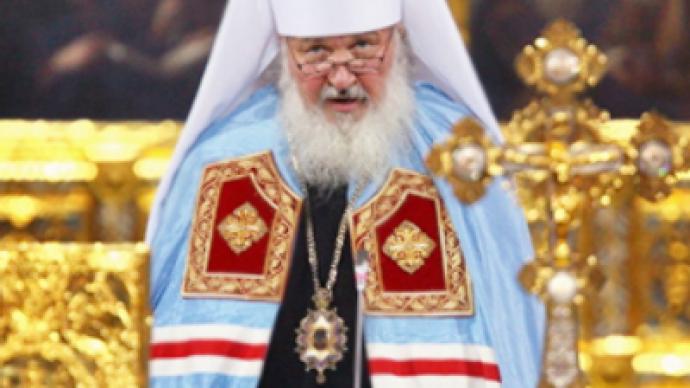Russia welcomes Kirill as new head of Orthodox Church

Metropolitan Kirill of Smolensk and Kaliningrad has been elected the new head of the Russian Orthodox Church.
The Council, which comprised clergymen, monks and laymen, announced on Tuesday the results of the voting for the post of Patriarch of Moscow and all Russia.
Kirill has been temporarily in charge of the church since the death in December of Aleksy the Second.
Kirill had previously been head of the external church relations department. He also hosted a TV programme popular among Russian believers and viewed on one of Russia’s main television channels.
Kirill was an active supporter of the reunification between the two branches of the Russian Orthodox Church, which was completed in May 2007.
The son of a priest, Kirill was born in Leningrad, now St Petersburg, in 1946.
After graduating from the seminary, he quickly climbed the church hierarchy. At thirty, Kirill was promoted to Archbishop and in 1991 was given the title of Metropolitan.
He was to become a close ally of Patriarch Aleksy and was among those who helped reunify the Russian Orthodox Church with its branch outside of Russia. The two groups had split following the Bolshevik revolution in 1917.
Additionally, for almost twenty years Kirill acted as foreign spokesman for the Russian Orthodox Church.
He also had a rare meeting with Pope Benedict at the Vatican and many hoped he would improve ties with Catholics.
However, conservative church leaders believe he went too far in his diplomatic efforts.
One of the most charismatic church leaders in modern Russia – his face is familiar even to nonbelievers since he appears frequently on TV and in interviews.
Now Kirill, the 16th patriarch, will have to answer the hopes of a much larger audience.
Originally, three Metropolitans – Kirill, Kliment and Filaret – had been short-listed by the Archbishop Council as potential successors to Aleksy II, who died last month. They were elected by secret ballot on Sunday from 145 potential candidates. Filaret later withdrew from the race in favour of Kirill.
For the first time, international candidates were eligible to stand. Patriarchs from Ukraine, Moldova and Germany were in the Russian capital for the voting.












